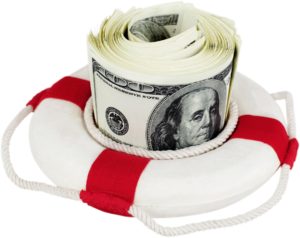 We’re going to look at the topic of finances made easier today. As I and my team have had the privilege to work with a variety of different businesses, we’ve realized that finances happen to be the most confusing part for leaders/owners, especially in newer businesses or smaller companies. So I’ll be comparing and contrasting personal finances with business finances in five different ways. Since every one of us have a certain degree of experience dealing with personal finances, I’m hoping that this post will make the business side of the coin a little bit easier to understand.
We’re going to look at the topic of finances made easier today. As I and my team have had the privilege to work with a variety of different businesses, we’ve realized that finances happen to be the most confusing part for leaders/owners, especially in newer businesses or smaller companies. So I’ll be comparing and contrasting personal finances with business finances in five different ways. Since every one of us have a certain degree of experience dealing with personal finances, I’m hoping that this post will make the business side of the coin a little bit easier to understand.
1. This is probably the simplest point, but it’s good to make more money than you spend. In your personal life, you know what your monthly salary is, and most likely you have a budget that is below that number. Because if not, you’ll go into debt and that’s obviously a bad thing. Well, same thing on the business side. You have a certain amount of revenue coming in, and it’s good to keep your expenses (wages, overhead, etc.) under that amount. That way, you will have a profit. Of course, profit isn’t everything. But it’s better to be profitable than not.
 2. Have an emergency fund. It’s good and healthy in your own individual private life to have some money set away, as kind of a “rainy-day fund” in case something happens. How much? That’s up to you, but most people would be well off with 3-6 months’ worth of expenses saved up. So if you spend $5k a month, have $15-30k set aside for emergencies.
2. Have an emergency fund. It’s good and healthy in your own individual private life to have some money set away, as kind of a “rainy-day fund” in case something happens. How much? That’s up to you, but most people would be well off with 3-6 months’ worth of expenses saved up. So if you spend $5k a month, have $15-30k set aside for emergencies.
In terms of business, it’s the same thing. You might not need 3-6 months’ worth, but do keep an emergency fund for 1-3 months of operating expenses at least. If for some reason no revenue comes in, you’d be able to stay afloat and recover. This practice is highly recommended for both individuals and businesses.
3. Salary (personal) or revenue (business) is not necessarily the most important number to look at. This is related to point #1. To keep things simple, let’s say you’re making $100,000 a year in after-tax salary, but you spend $110,000 or $120,000. Well, then you’d be in the negative. But if you made $80,000 per year after tax and only spend $50,000, you have an extra $30,000 left over every year. Which scenario would you prefer? I would say the latter, even if I’m not making as much to begin with.
In terms of business, revenue is sometimes considered the vanity number. You can call your business a million dollar business if your revenue is that much. However, how much did you spend to earn that $1M? If your expenses are higher, then you’re actually in the hole. In this case, cash in the bank might be a better gauge than total revenue for how well you’re doing.
 4. Be cautious of debt. In both your personal life and business, debt can be a very dangerous thing. I’m talking specifically about bad debt, although I wouldn’t call any debt “good.” However, some are worse than others. If you own a home and you have a mortgage, that’s not the end of the world because you have an appreciating asset that’s becoming more and more valuable every year (in general). But if you take on credit card loans that have insanely high interest rates, you should be cautious and start working towards resolving that kind of debt.
4. Be cautious of debt. In both your personal life and business, debt can be a very dangerous thing. I’m talking specifically about bad debt, although I wouldn’t call any debt “good.” However, some are worse than others. If you own a home and you have a mortgage, that’s not the end of the world because you have an appreciating asset that’s becoming more and more valuable every year (in general). But if you take on credit card loans that have insanely high interest rates, you should be cautious and start working towards resolving that kind of debt.
On the business side, I would be even more cautious of debt. Sure, businesses themselves are considered appreciating assets if ran correctly, but a business with loads of debt over its head is obviously less desirable than one without. You could make the argument that extra cash is needed when you’re trying to grow. Still, I’d suggest looking into organic ways to grow first, even at the tradeoff of a slower pace. When you grow really fast, you’re often pressured by debt and working all the time. So this isn’t simply a monetary decision, but also a work-life balance consideration. Ask yourself if it’s really worth it, because there are other ways. You could reach out to venture capitalists or angel investors. You could sell unnecessary assets, decrease certain expenses, become more efficient as a company and cut costs in other ways, and so on. Of course, there are pros and cons to each of these methods. Only you know which way is best suited to your unique situation.
The last point I want to address is the danger of being wasteful. For example, if you use financing just to purchase something you don’t really need, something that won’t have a huge impact on the business, you could be looking at a bad debt situation that should be avoided at all costs.
5. It’s important to understand the numbers for both personal and business finances. Know how much you spend every month. Know how much money comes in and when. Have a budget. Be aware of when each bill is due. Knowing all this is very important. It’s never a good idea to put your head in the sand and ignore the finances. Otherwise it can easily slip away from you, and force you into debt that you can’t get out of.
Again, finances aren’t easy. Hopefully this simplified it a little bit for you though. So go out, take action, and have a better than great day.
 We’re going to look at the topic of finances made easier today. As I and my team have had the privilege to work with a variety of different businesses, we’ve realized that finances happen to be the most confusing part for leaders/owners, especially in newer businesses or smaller companies. So I’ll be comparing and contrasting personal finances with business finances in five different ways. Since every one of us have a certain degree of experience dealing with personal finances, I’m hoping that this post will make the business side of the coin a little bit easier to understand.
We’re going to look at the topic of finances made easier today. As I and my team have had the privilege to work with a variety of different businesses, we’ve realized that finances happen to be the most confusing part for leaders/owners, especially in newer businesses or smaller companies. So I’ll be comparing and contrasting personal finances with business finances in five different ways. Since every one of us have a certain degree of experience dealing with personal finances, I’m hoping that this post will make the business side of the coin a little bit easier to understand. 2. Have an emergency fund. It’s good and healthy in your own individual private life to have some money set away, as kind of a “rainy-day fund” in case something happens. How much? That’s up to you, but most people would be well off with 3-6 months’ worth of expenses saved up. So if you spend $5k a month, have $15-30k set aside for emergencies.
2. Have an emergency fund. It’s good and healthy in your own individual private life to have some money set away, as kind of a “rainy-day fund” in case something happens. How much? That’s up to you, but most people would be well off with 3-6 months’ worth of expenses saved up. So if you spend $5k a month, have $15-30k set aside for emergencies. 4. Be cautious of debt. In both your personal life and business, debt can be a very dangerous thing. I’m talking specifically about bad debt, although I wouldn’t call any debt “good.” However, some are worse than others. If you own a home and you have a mortgage, that’s not the end of the world because you have an appreciating asset that’s becoming more and more valuable every year (in general). But if you take on credit card loans that have insanely high interest rates, you should be cautious and start working towards resolving that kind of debt.
4. Be cautious of debt. In both your personal life and business, debt can be a very dangerous thing. I’m talking specifically about bad debt, although I wouldn’t call any debt “good.” However, some are worse than others. If you own a home and you have a mortgage, that’s not the end of the world because you have an appreciating asset that’s becoming more and more valuable every year (in general). But if you take on credit card loans that have insanely high interest rates, you should be cautious and start working towards resolving that kind of debt.